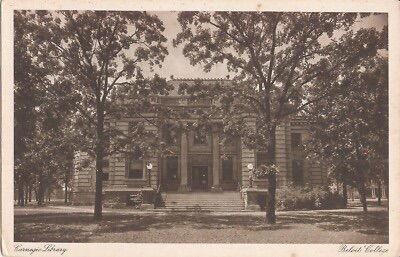In my research on how billionaires influence education, I’ve primarily focused on Beloit College, a place I once considered attending. A key area of interest is the complex ways in which billionaires have shaped the college’s curriculum—an extensive topic that requires significant time and exploration. Interestingly, despite its location in a relatively small city compared to major metropolitan areas like New York or Chicago, Beloit has seen its share of high-profile alumni (including the problematic Judith Miller). Fun fact: I used to handle after-hours phone calls for Beloit College, and occasionally, Paul Newman would call the President of the College, as his first wife was an actress from Beloit. Additionally, I discovered an unexpected historical aspect: the college’s collaboration with the U.S. government on various initiatives, particularly the Student Association for the Study of Hallucinogens (STASH). However, finding detailed information about STASH online has proven challenging, indicating that further investigation may necessitate a visit to the college’s archives. This collection of insights points to a surprisingly rich and intriguing history for the institution.
Read More »Tag: Friedrich Hayek
Libertarian City Dream in Honduras Becomes $11 Billion Nightmare + More
[2003] When the CIA financed European Intellectuals
To counteract the Soviet influence in Europe, at the end of WWII the United States created a network of pro-American elites. Thus, the CIA financed the Congress for Cultural Freedom in which many European intellectuals participated. Among the most distinguished ones were Raymond Aron and Michel Crozier. Responsible for designing an anti-communist ideology welcomed by the conservative right as well as the socialist and reformist left of Europe during the Cold War, these networks were reactivated by the Bush administration. Today, they are the European sounding board of American conservatives.
When the CIA financed European Intellectuals
Related:
Tom Braden, Real-Life Dad Behind ‘Eight Is Enough’ and ‘Crossfire’ Pundit, Dies
As a CIA official in the early 1950s, Mr. Braden was head of the International Organizations Division, which promoted anti-communism by secretly funding groups including the AFL-CIO and the National Student Association, sending the Boston Symphony Orchestra on a European tour and publishing Encounter magazine. After Ramparts magazine exposed the CIA’s system of funding anti-communist front organizations all over the globe, Mr. Braden defended the program in an article in a 1967 issue of the Saturday Evening Post. He said the secret program was his idea.
Orinoco Tribune Editor: There Was a Coup Against Pedro Castillo in Peru + Some Notes
Orinoco Tribune Editor: There Was a Coup Against Pedro Castillo in Peru
Rodríguez remarked that the appointment of Vice President Dina Boluarte as the de facto president is a measure adopted by the Peruvian Congress to disguise the coup d’état. “Naming Dina Boluarte as the de facto president is a halfway solution between Pedro Castillo and José William Zapata, the president of Congress, who is a right-wing military man accused of corruption and drug trafficking and what have you,” he opined. “So, I believe they chose Dina Boluarte to prevent greater tension or political instability in Peru… In fact, José William Zapata was the president of Peru for some minutes and then transferred power to Dina Boluarte. This was all that was behind the coup in Peru.”
Some notes, to self, on José Williams, Hernando de Soto, Institute for Liberty and Democracy, Omidyar Network, & Atlas Network:
Read More »Canada: Pierre Poilievre’s Fake Populist Playbook
Pierre Poilievre’s Fake Populist Playbook
Related:
Rallies against the ruling elite, yet closely associates with them…methinks he doth protest too much!
“Saving Carthage”-The Class Formation of a Cold War Deep State (Part One)
“Totalitarian” Anti-Communism: Loaded Language Straight Out of CIA, Neo-Con Playbook
Neoliberalism is the Bipartisan Consensus, Not the Lesser of Two Evils
Neoliberalism is the Bipartisan Consensus, Not the Lesser of Two Evils
West’s incorrect partisan conceptualization of neoliberalism is not only wrong, but it is misleading. While the word “neoliberal” is etymologically related to the word “liberal,” it has no relationship with the current political usage of the term “liberal” and its modern association with the Democratic Party. Rather, it harkens back to the 18th century Scottish economic philosopher Adam Smith who advocated the removal of all tariffs and restrictions on free capital so that the “invisible hand” of the market could bring prosperity to all. In the post-WWII years of the 20th century, Smith’s ideas about the liberalization of capital were brought back into the spotlight by economist Friedrich Hayek and, later, Milton Friedman whose goal was to completely dismantle the social safety nets of FDR’s New Deal, which, it was argued, hampered free capital. Thus, neoliberalism is a “neo” form of 18th century economic liberalism and has no connection to the political “liberalism” of today’s Democratic Party.


You must be logged in to post a comment.